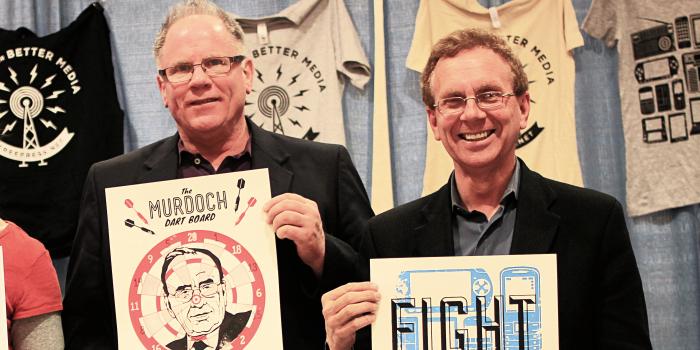In Lawsuit, Free Press Condemns the FCC for an Appalling Lack of Diversity in Radio and TV Ownership

WASHINGTON — On Friday, Free Press and several allies filed a brief in the U.S. Court of Appeals for the Third Circuit challenging the Federal Communications Commission’s repeal and relaxation of several of its broadcast-ownership rules.
In the brief, Common Cause, the Communications Workers of America, Free Press, the Media Mobilizing Project, the Prometheus Radio Project, and the United Church of Christ Office of Communication, Inc., show that the agency has failed to fulfill its obligation to promote race and gender diversity in television and radio ownership.
As a result, broadcast conglomerates like Gray Television and Nexstar Media Group are already finalizing and pursuing deals to control more local stations.
“[T]he FCC has replaced decades of complex (though still inadequate) study with a total of three paragraphs across three orders, using simplistic numerical tabulation and unreliable data not subject to required notice and comment,” the petitioners’ brief reads. Though incomplete, existing data show appallingly low levels of station ownership among women and people of color.
Earlier this month, the FCC voted to begin another of its congressionally required, periodic rulemaking processes to determine whether the remaining broadcast-ownership regulations are “necessary in the public interest.” In previous reviews of its rules, the FCC failed to properly investigate or address the lack of ownership diversity, even though the Third Circuit has told it to do so in three previous decisions.
Free Press Deputy Director and Senior Counsel Jessica J. González made the following statement:
“We’re suing the FCC for repeatedly failing to foster a media system that reflects the diversity of the American people. On not one but three occasions, the court has told the agency to examine how broadcast media consolidation impacts ownership opportunities for women and people of color before it even considers blessing further concentration. Instead, the FCC further weakened media-ownership limits with little more than a wink to diversity.
“It’s become painfully evident that media consolidation leaves us with far less of the local news and information communities need to stay informed. Despite the growth in digital-media options, free over-the-air broadcasting remains a critical news source for people of color and low-income communities. To meet the needs of these populations, the FCC must nurture ownership diversity, not let giant companies like Nexstar devour even more local stations.
“Congress put broadcast-ownership limits in place for a reason: to promote a diversity of choices among local stations. We’re taking the FCC to court for turning its back on this core principle, placing station ownership in too few hands, and denying too many of us broadcast media that serve community needs.”




